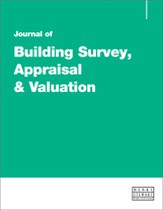Dilapidations update: The effect of the COVID-19 pandemic on insolvency claims and landlord and tenant disputes
Abstract
This paper addresses the ongoing impact of the COVID-19 pandemic on insolvency claims and real estate disputes between landlords and tenants. In particular, focus is given to the effect on, and changing consumer patterns in relation to, the retail and hospitality sectors and the knock-on effect this has had on landlords of business tenants. The number of company voluntary arrangements (CVAs) has grown significantly and is likely to remain high throughout 2021 and into 2022. While the Government tried to reduce the number by the introduction of the CIGA 2020 Restructuring Plan, which has several benefits over the usual CVA route, this is but one of various pieces of legislation brought in by the Government in an attempt to address the issues raised by COVID-19. There have been many restrictions introduced which limit landlords and their ability to bring insolvency claims, to seek forfeiture of a lease or to pursue rent arrears which are being phased out as of 1st October, 2021, with some landlord restrictions being wholly removed by 30th March, 2022. From recent government announcements, it appears some of the restrictions are here to stay. While both tenants and landlords struggled to survive in the midst of the UK’s national lockdowns, the Government now seems to be making it clear the economy is open for business, not quite as usual, but heading in that direction. It remains the case that some are still struggling and that negotiation with regards to payment of rent and possible rent reductions are an important tool on both sides. It will also be important for landlords to consider their options with regards to seeking repayment from third parties should it prove unviable to recover from tenants directly. Overall, it is likely we will see a change in the relationship between landlords and tenants and the terms on which they are willing to engage in the future.
The full article is available to subscribers to the journal.
Author's Biography
Kate Andrews is a partner of Hamlins LLP and head of the real estate disputes team. Kate is a property litigator who adopts an advisory and dispute resolution role, as well as a litigious one, on a wide variety of high-profile real estate disputes. Kate deals with various breaches of leasehold covenants, including dilapidations, service charges, applications for consent to assign, underlet and alter, rent reviews and other landlord and tenant issues. She also deals with contractual and development disputes, including specific performance claims, injunctions, rights to light, restrictive covenant issues, joint venture disputes and redevelopment of business premises. Kate acts on high-profile real estate disputes for clients including high net worth individuals, property funds and developers. She is keen advocate of alternative dispute resolution and has settled a number of complex legal disputes at mediation or by without prejudice discussions. Clients describe Kate as an extremely talented property litigator, who goes the extra mile for her clients, finding a resolution to every problem. Kate is the vice president of the Property Litigation Association Education Committee. She is a member of the Steering Committee for Property Litigation for Lexis Nexis and the expert litigator for Lexis Nexis Q&A.
Citation
Andrews, Kate (2021, December 15). Dilapidations update: The effect of the COVID-19 pandemic on insolvency claims and landlord and tenant disputes. In the Journal of Building Survey, Appraisal & Valuation, Volume 10, Issue 3. https://doi.org/10.69554/FTEU6623.Publications LLP
